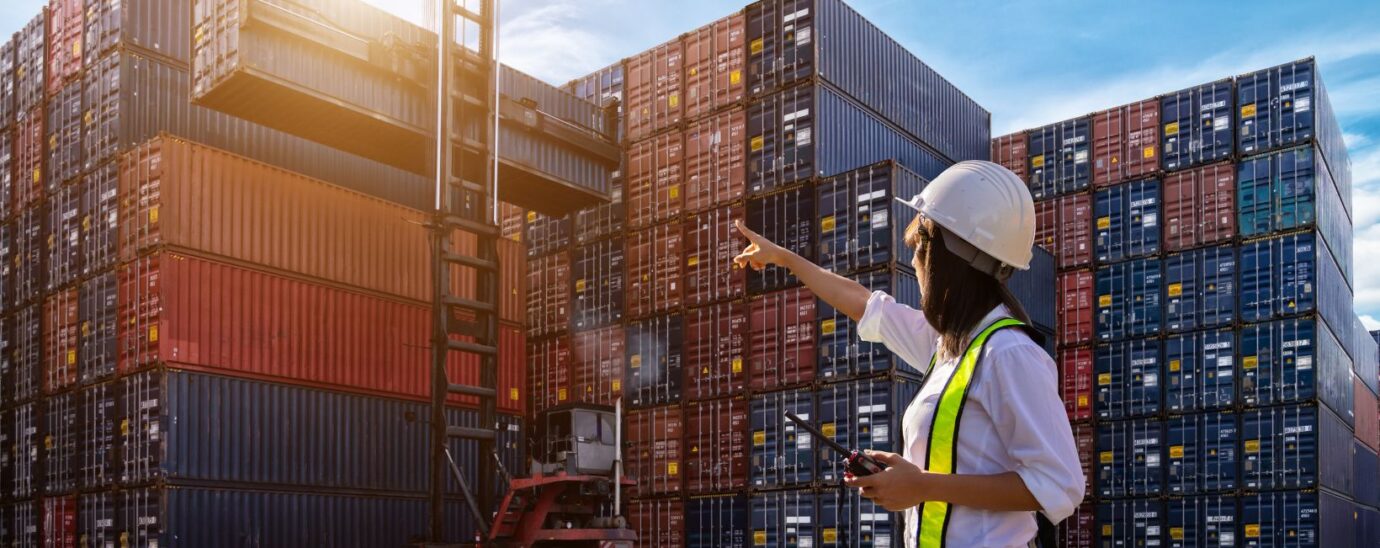eCMR: If not now, then when?

Gerry Daalhuisen, Product Unit Lead Dock Scheduling & Yard Management at Transporeon, A Trimble Company
There have been several unexpected pit stops on the road to eliminating paper-based processes in logistics. But, is paper finally set to be a thing of the past?
2024 marks 13 years since the official launch of the eCMR protocol in 2011. And, by 2026, all EU member states will have adopted the protocol, which will streamline international freight transport by replacing the longstanding physical consignment notes. Currently, 35 countries have ratified eCMR, with eight more to go. Leading the way in the Mediterranean region, Greece and Italy are the latest countries to commit to eCMR after acceding to the protocol in October 2023 and March 2024, respectively. Other countries, including Belgium, are actively working towards ratification, with progress expected soon.
Post 2026, companies will, in most cases, still be permitted to use paper transport documentation. However, given upcoming regulatory changes and a host of other factors, it seems that embracing paperless processes is finally a top priority for the logistics industry. Recent research by Transporeon revealed that shippers, carriers and LSPs view ‘document generation and distribution’ as one of the top five opportunities for process automation in transportation management. But going paperless isn’t just about moving from physical documents to PDFs – a common misconception. The benefits extend much further and can transform how companies do business.

The early bird catches the worm
eCMR compliance goes hand in hand with complying with another piece of EU legislation, the Electronic Freight Transport Information Regulation (eFTI). By allowing freight transport operators to submit regulatory information electronically, the regulation will simplify inspections and compliance checks in the EU by harmonising and digitising regulatory information exchange. Currently, its planned phased implementation timeline spans from August 2024 to 2025. Put simply, eFTI creates the framework for digital information exchange, while eCMR facilitates the presentation of a key part of that information in a digital format. In this way, eCMR is a crucial stepping stone towards broader eFTI implementation.
Early adoption of eCMR ensures companies are fully compliant ahead of the regulatory mandate, avoiding potential disruption. Implementing a tailored eCMR solution takes time, and companies will likely also need to tweak longstanding processes to accommodate a new digital solution. So, the sooner they start to prepare, the better. The implementation of new technology often involves a learning curve, so early action allows teams to become familiar with the technology and receive the necessary training.
Beyond compliance – the broader business impact
By implementing an eCMR solution, administrative tasks such as document processing, billing, and archiving can be reduced from days to minutes. Moreover, eCMR solutions can significantly reduce costs associated with paper-based processes, including printing, storage and document handling. This has one other crucial advantage – sustainability. Going paperless is a key step in most carriers’ sustainability journey, and given recent EU freight sustainability legislation and mounting public concern about climate change, all industry players are now under pressure to explain how they plan to reach ‘net zero’.
Another advantage of going paperless is the real-time visibility it brings. As soon as a recipient signs for goods, the shipper and the carrier know they’ve arrived, and the carrier can submit their transport invoice immediately for quicker payment. But a digital solution can also help companies troubleshoot when consignments run into trouble. Consider the example of goods being rejected due to damage upon unloading. With a paperless solution in place, shippers are notified immediately, so they can engage with their carrier and contact their customer to resolve the situation. This enables companies to shift their stance from reactive to proactive. In other words, going paperless enhances satisfaction and builds long-term loyalty by enabling closer collaboration between carriers, shippers and end customers.
Linked to this, if implemented strategically, eCMR solutions can be a valuable source of real-time shipment data. And despite the fact they don’t technically generate any ‘new’ data, they unite a vast quantity of information into a format that’s easy to access and analyse. This can help inform carriers’ strategies – for instance, by revealing common mistakes in paperwork or patterns in goods being turned away. Used correctly, this information can provide a long-term competitive advantage. Winfried Netzer, Branch Manager at the international transport and logistics services company Integre Trans, recently highlighted this, saying, “If you look at today’s market situation, you can see that freight transport information is generally shared via various IT solutions. Harmonising this would definitely make information sharing easier, faster and cheaper. It would also allow easy access to documentation whenever and wherever. That would help us collaborate quicker and more easily with our customers, especially fleet operators. It is important to us to provide customers with the right information in the shortest possible time…For example, it’s absolutely wonderful if everybody can work on a document simultaneously, cutting down admin time, which is a cost-saving factor.”
Beyond eCMR
Ultimately, adopting an eCMR solution is just the first step of a much longer digitalisation journey. Long-term success hinges on replacing disparate, siloed systems with a platform approach. Platforms value connections, enabling integration with other systems and tools. The result is increased adaptability, collaboration and visibility between shippers, carriers and recipients.
Overall, the industry should be ambitious and appreciate the transformative potential of going paperless. It is therefore imperative that carriers take ownership of the process and consider the benefits beyond compliance in order to maximise the benefits of an eCMR solution, by looking holistically at which internal processes need to be changed to achieve maximum benefits. Companies that do this are already experiencing transformational effects.